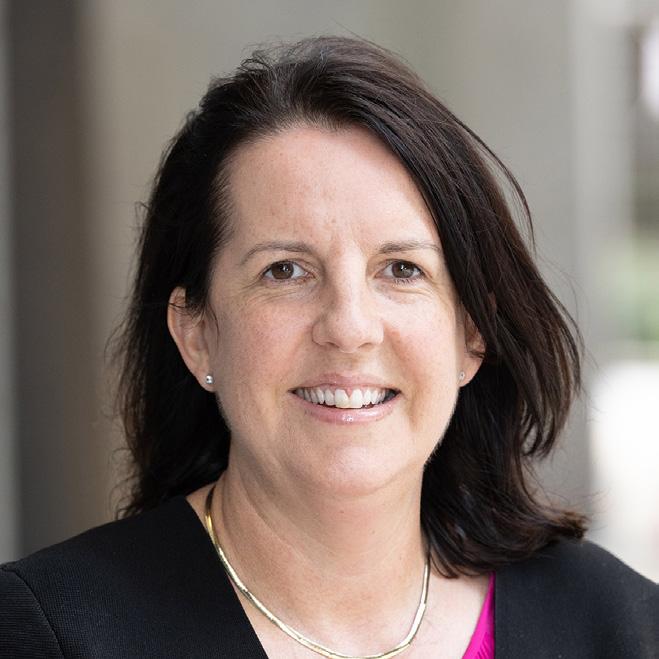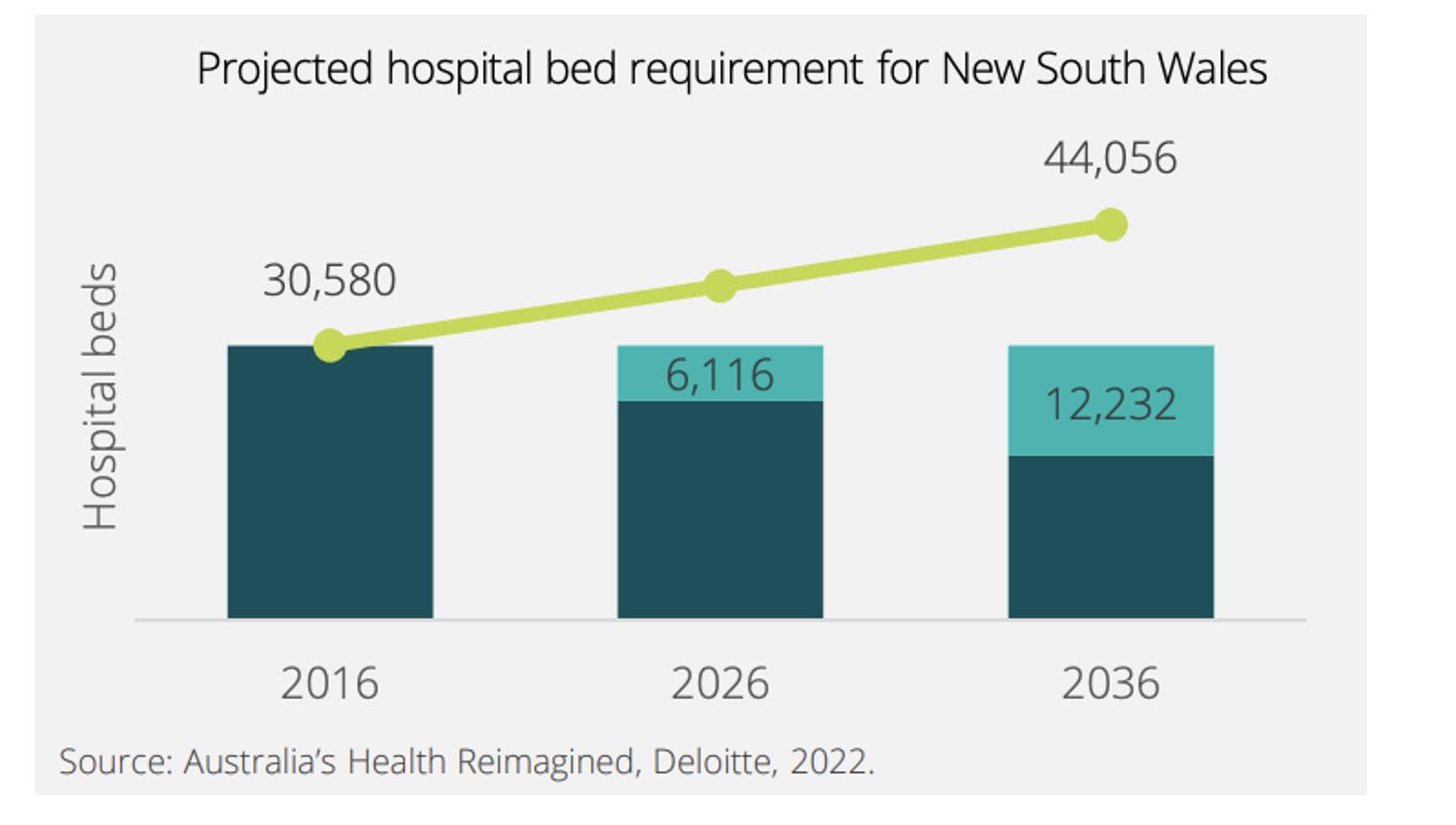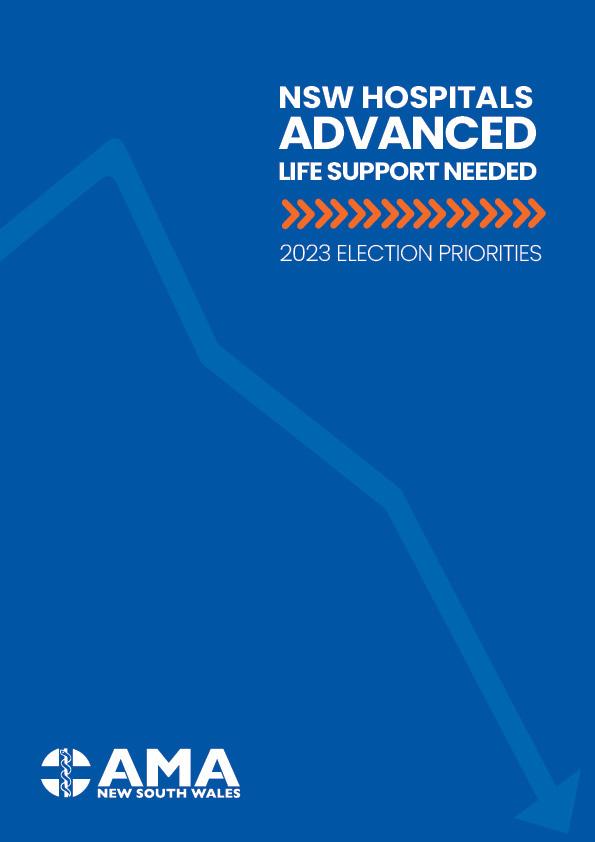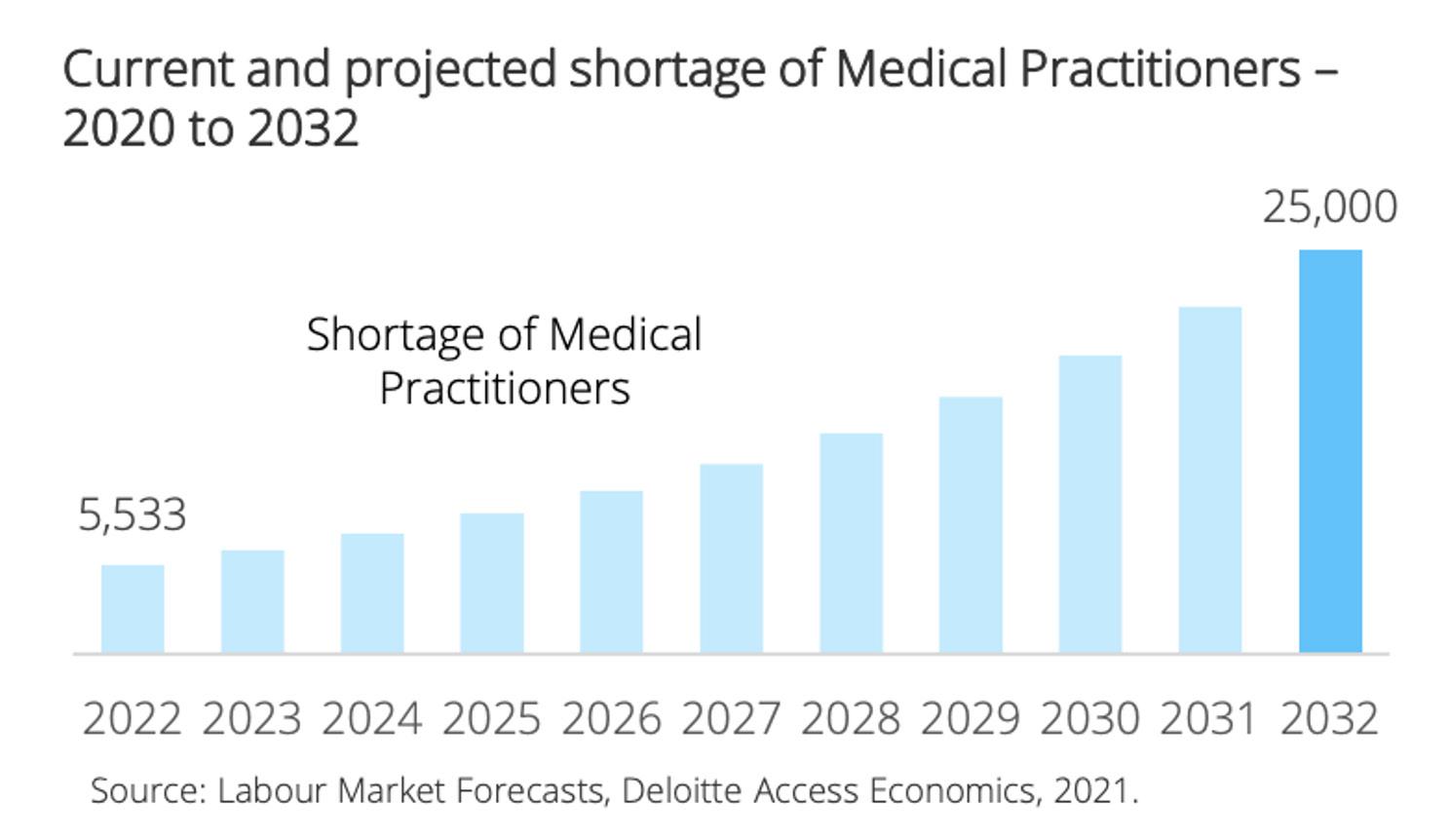
5 minute read
STEPPING UP
There are always risks to speaking out. But with so much at stake in health at the moment, isn’t it a bigger risk if doctors say nothing?
My husband, neurosurgeon and past AMA President, Prof Brian Owler, tells the story of starting his internship at RPA. One of the first things he did was walk into the Medical Staff Council meeting and tell some of the most eminent doctors in the country that he was leading the doctors-in-training on strike. He also tells the story of the phone ringing at his family home in Panania. It was Dr Bruce Shepherd on the line – telling Brian that he had heard about the strike and that he was giving Brian his full support. It’s probably not surprising that our Federal AMA colleagues are still able to scare Federal bureaucrats with the threat of taking an issue up to the ‘Owler factor’.
As we have been warning for some time, a profession that has a proud history of fighting for patients, for resources, and for the system, is facing the fight of our lives. Never in my 20-year-career with the AMA have I seen such threats and such a need for advocacy. At a state and federal level, it is as if doctors are the least important part of healthcare – replaceable, unnecessary and a burden. It is part of the trashing of elites, the death of respect for knowledge and expertise.
I find the desire to replace doctors particularly galling given there is one group who take their access to doctors – for their care and their families – very seriously. That group is politicians. And yet for their communities, substitution and any access to care is good enough.
I am often told by doctors that they don’t want to put themselves out there when it comes to fights. They tell me “it’s different now” or “there will be reprisals”. I am here to assure everyone that it’s not different and there have always been risks for those who put themselves out there. Stepping up happens when, at some point, the harm of continuing on becomes greater than the risks of speaking out.
In the fight we are facing, we will need to use different tools. Our traditional avenues of mainstream media are fading in importance and relevance. Stories come and go. This is why we are moving our campaigning approach to the most important asset we have – our patients – and looking for doctors to step up and tell their stories through their patients.
Dr Aziz Iboyan is one such hero. Dr Iboyan is exactly the sort of family GP everyone would want. He practices in Hornsby and for the past few months, has been telling his patients about the payroll tax grab. He has the AMA materials in his waiting room and has used them to tell patients what payroll tax will mean for his practice. Dr Iboyan also spoke to The Australian newspaper and put a face and a voice to a story the AMA has been running for a number of years. He showed the true value of general practice in a way that 100 media releases could never do.
There will be many such interactions and opportunities for doctors to be advocates and heroes. It’s just a matter of stepping up. dr.
Doctors
Ahead of the 2023
NSW Election, AMA (NSW) had one key ask…
It is a system, however, that has been losing ground over many years. Patients wait – for treatments, for surgeries, for appointments, for care because of under-resourcing and an attitude that our system is “good enough”. Our patients deserve better: better access to doctors across the State, a doctor to do the jobs that patients expect doctors to do, and doctors that have the support and equipment to deliver high quality care that leaves no one behind.
Our health system is falling behind on every measure. If we continue on this trajectory, our hospitals will be overrun, and patients will face dire healthcare consequences. We cannot expand the capacity of the health system without addressing workforce shortages.
AMA (NSW) is calling on the State to harness the same political will it took to effectively safeguard the lives of millions of residents during the pandemic and apply that same energy, funding, time, and strategic decision-making to tackling the healthcare challenges that are fuelling the public hospital crisis.
The pandemic response was demonstrative of the State’s capacity to respond to the crisis at hand. Whilst the COVID threat has waned, the State faces new challenges – hospital logjams, long elective surgery waitlists, and an ever-growing population with increasingly complex, chronic conditions.

AMA (NSW) launched its 2023 Election Priorities document NSW Hospitals: Advanced Life Support Needed which highlights three aims for the next government: support our health system; support rural healthcare; and support doctors’ health and wellbeing.

Support our health system
Topping the list of priorities is workforce.
In preparing our report, we asked doctors around the State about their experiences and what they saw as the major challenges facing healthcare delivery in NSW.
The responses were unanimous –we need more healthcare workers. We need more allied health, we need more nurses, we need more midwives, but specifically we need more doctors. While all members of the care team are important, doctors are central to that team.
NSW cannot have a world-class health system without doctors. Nor can it substitute its way out of employing more doctors.
AMA (NSW) engaged Deloitte to provide an analysis of the workforce pressures the NSW health system is currently facing. The evidence in Deloitte’s Medical Workforce Pressures in NSW supports a case for change. Specifically, it found that the growth in demand for healthcare services is outstripping population growth. As a result, health workers in NSW will need to become 40% more productive by 2050 to meet forecast demand.

Doctors are already struggling to meet current demands. Our surveys have identified high levels of burnout with 8 in 10 doctors reporting workplace stress and only third of respondents feeling valued in their roles. The government can no longer rely on the goodwill of doctors to keep the plates spinning.
The system simply cannot meet the current challenges without adequate funding and improvements in workforce. This cannot be done without addressing the current wages policy and updating the Staff Specialist Award and modernising contractual arrangements for VMOs. NSW is losing ground to other jurisdictions that offer better remuneration and support to doctors.
In addition, we recognise the need to use our resources smarter. We need to build the capacity of doctors, who play a central role on the care team, to ensure their hours are maximised to provide the best care possible to patients.
Support rural healthcare AMA (NSW)’s 2023 Election
Priorities also includes specific recommendations to improve rural and regional healthcare. The rural health inquiry shone a spotlight on many areas for improvement and the next Government must be responsible for implementing the report’s recommendations.
There needs to be greater support for the specialist workforce to increase healthcare access in regional areas and improve retention. Similarly, we are calling on government to implement recommendations that provide greater training opportunities for the next generation of regional doctors.
Support doctors’ health and wellbeing
Lastly, we have highlighted the importance of doctors’ health and wellbeing. The Government must care for the carers if our medical workforce is to fulfill the great task of providing world class care to NSW residents.
After two years of the pandemic and sustained pressure on doctors to keep up with patient demand, we know there is a significant level of workplace stress, which leads to poorer mental health.
Time for solutions
The next Government is taking the helm at a pivotal point in history and has an opportunity to shape a health system that is not only responsive to the current needs of the population, but also takes into account the changing needs of future populations. We know the problems that exist and we know the solutions. We’re asking the next NSW Government to trust the same people that got us through COVID, to guide us through the current challenges facing the health system. dr.









